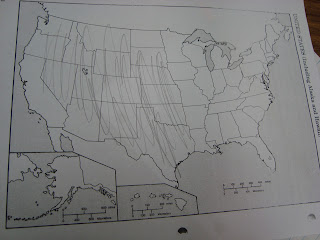Each year, my students participate in a speech contest that is sponsored by Tropicana and Florida 4-H. This is actually a state-wide contest for students in grades 4-6. I love this program because I get to teach my students how to write and deliver a speech. I, myself, enjoy public speaking and believe it is a valuable skill to teach children.
Students come up with a topic that interests them, research information, and then write a 2-3 minute speech. I encourage my students to talk over topics with their parents, but all the research and writing is done in class. This isn't always the case in other schools, but at CCS, we like to see what our students are capable of on their own.
Topics must be approved by the teacher and I have even asked students to change their topics before. I usually won't allow them to write about siblings, pets, or vacations (those seem like 4th grade topics). I want them to choose topics that require a little research. Students may not use the same topic twice. Here are a few topics from my students this year:
- The History of Basketball
- The Benefits of Laughter
- A Day in the Life of a Poison Dart Frog
- Big Ben
- Ballet IS a Sport
- Taylor Swift
- The Impact of Commercials
- Harry Houdini
- Music--The Magic Medicine
- Oscar Pistorius
I always learn something new when we work on the speeches. For example, I didn't have a clue who Oscar Pistorius was until a student told me he wanted to write a speech about him!
Once the speeches are written, we hold a classroom contest. The teachers do not get to judge and sometimes I'm surprised by the results. Three students are chosen from each class to move on to the school-wide contest. This year, my top three speeches were The History of Basketball, The Impact of Commercials, and Music--The Magic Medicine. For the past three years, one of my students has won the school contest and advanced to the county level.
This year, the student who wrote his speech on The Impact of Commercials won the school-wide contest! Yesterday, I went to cheer him on at the county level and he actually won Most Humorous Speech! I am one proud teacher! Even though I've had several students advance to the county level, none of them have ever placed at this level. We were so excited!
To learn more about this program and check out resources for teaching public speaking, CLICK HERE.
Does your elementary/middle school teach public speaking? Do you have any helpful resources that you could share?






















